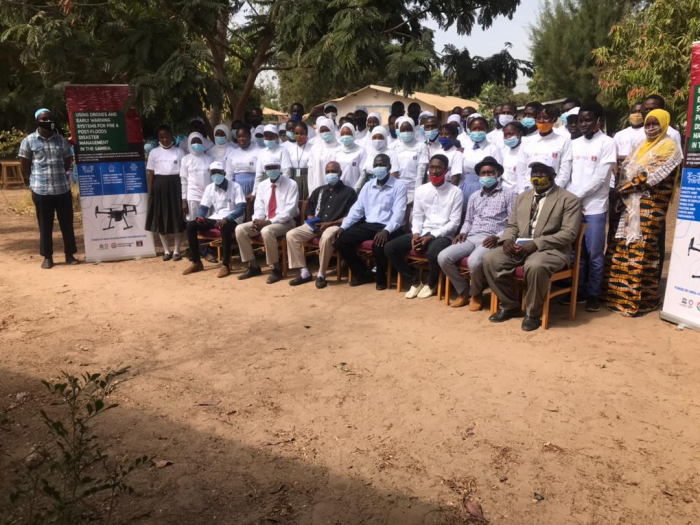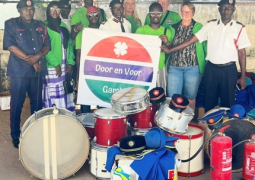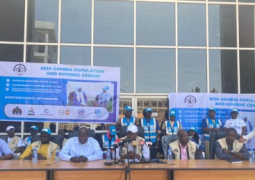
The training is designed to provide important information to help students understand the risks of natural hazards and to help mitigate disasters and identification of hazards in their respective communities.
Addressing the event held at the Region 1 Education Directorate, Kanifing, Kawsu Barrow, monitoring and evaluation officer at the NDMA, who also doubles as a project coordinator, said the main objectives of the training is to raise awareness among the students and to make them understand Disaster Risk Reduction principles and methodologies for them to build community resilience.
“One of the object is for the students and community leaders to understand the key concept of disasters and how to identify hazards and to develop their hazard maps. The process will also help the community leaders to be able to develop or design their community hazard maps for the Greater Banjul Area.”
Barrow informed that one of their indicators for the Sandei Framework is to ensure that every member state in the African Union would be able to mainstream Disaster Risk Reduction in their educational curriculum.
"We have trained STEM teachers, who are in the education system to be able to better prepare so that we can know how to enhance your understanding as students. Your role in our society and your role in disaster risk management is very crucial and very important" he said
Flooding, he added, is one of the major hazards affecting lives and livelihoods of the people in the country and economically ‘we are losing a lot' he said
Alhagie Jallow, principal education Officer No. 2 extended appreciation to the NDMA for the training, which he said, would avail students the opportunity to acquire skills, knowledge and attitude for them to participate fully in Disaster Risk Reduction in the Gambia.
“Education is a powerful tool and knowledge gain from the training, once applied properly, can go a long way in reducing disaster management in the country,” he said.
Bubacarr Fofana, NDMA Regional Coordinator for the Kanifing Municipality, spoke on the importance of attitudinal change towards disaster risk reduction.
“People need to change and in this country we have attitude problem towards disaster management.'' he said
He cited the existence of the anti-littering law, saying people are not adhering to it. "We feel that if we train school children and they are able to understand and have concept of disaster management on DRR, they can serve as change agent on disaster in the country'' he said.
The project "Using Drones and Early Warning System for Pre- and Post-Flood Disaster Management in The Gambia is funded by the Indian Government through the India-UN Development Partnership Fund.
Read Other Articles In National News





